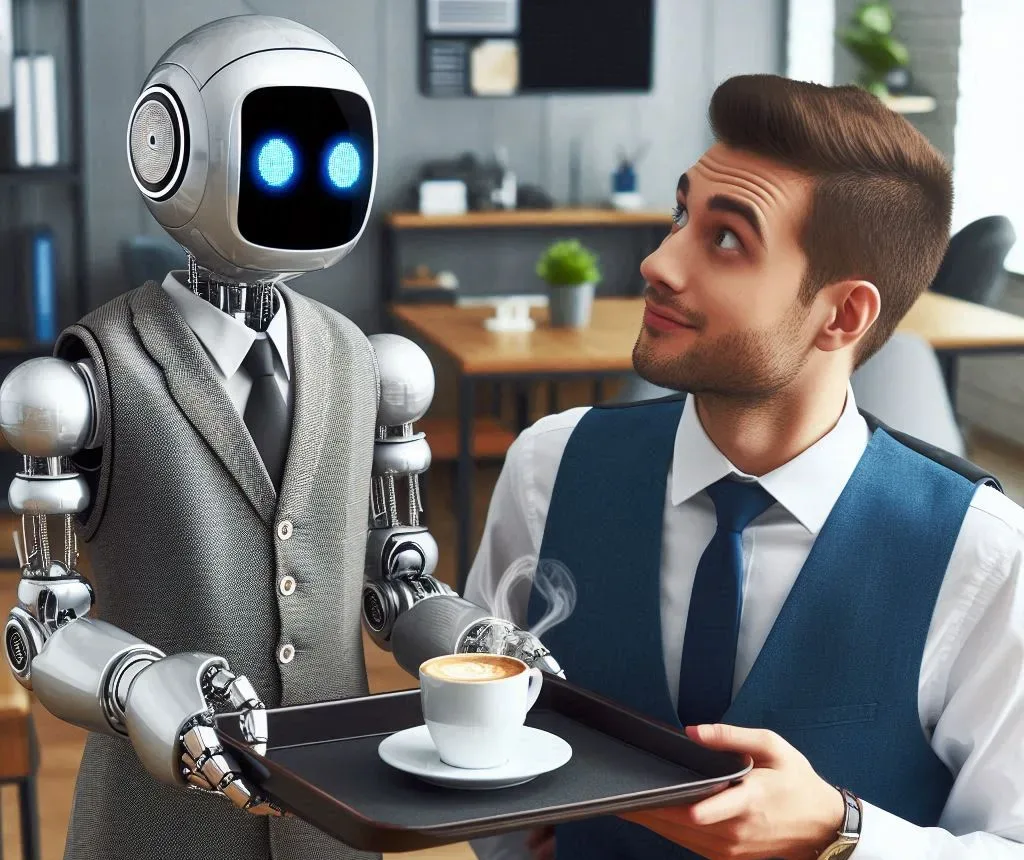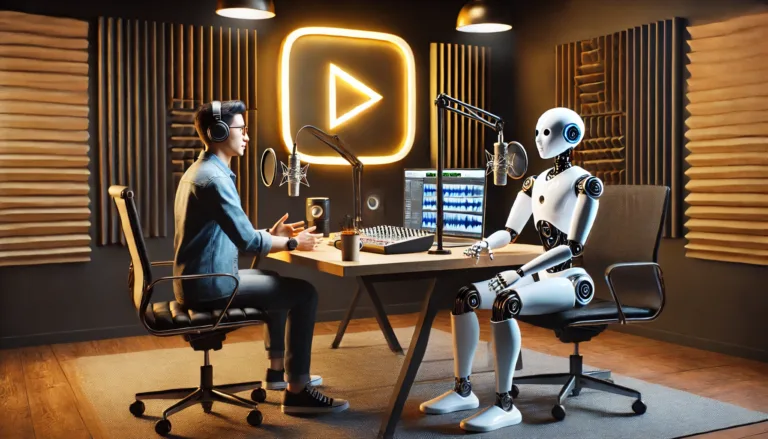Artificial Intelligence (AI) assistants have come a long way since their inception, becoming increasingly intelligent, versatile, and integrated into our everyday lives. From basic question-answering bots to advanced AI that can handle complex tasks, the growth of AI assistants marks a significant technological revolution. But what does the future hold for AI assistants? Will they become fully autonomous robots that help us with daily tasks, or will they remain digital-only entities, assisting from our devices?
This blog post will explore the evolution of AI assistants—how they’ve evolved from the past, their current state, and what the future could look like. We’ll also examine their role in the lives of regular users and programmers, along with the potential rise of AI-powered robot assistants.
The Beginnings of AI Assistants
The idea of intelligent machines has fascinated people for centuries. However, it wasn’t until the late 20th century that AI-powered assistants began to become a reality. The first generation of digital assistants was relatively primitive by today’s standards. Early versions could only respond to basic voice commands and offer limited functionality.
One of the earliest examples was IBM’s Watson in the 1990s, which was designed to process natural language and deliver intelligent responses. While it was groundbreaking, Watson’s capabilities were mostly used in highly specific areas such as healthcare or technical research, far from being available as a consumer assistant.
It wasn’t until Apple’s Siri in 2011 that AI assistants became part of the mainstream. Siri could interact with users via voice commands, answer questions, and perform basic tasks like setting reminders. Though limited, it was the first AI assistant that made its way into millions of households via smartphones. This marked a shift in how people interacted with their devices.
Present: AI Assistants Today
Fast forward to today, and AI assistants have drastically improved. Assistants like Amazon’s Alexa, Google Assistant, and Microsoft’s Cortana are now part of everyday life. These assistants are more than just question-answering machines—they help manage homes, control IoT devices, perform transactions, and even conduct research.
For example, smart speakers equipped with AI assistants can now control lights, play music, schedule appointments, and even read news or weather reports. AI assistants can now recognize context and respond accordingly, improving user experience through machine learning. As AI has evolved, so have these assistants. Some of their most remarkable advancements include:
- Contextual Awareness: Today’s AI assistants can maintain context across multiple commands. For example, if you ask Google Assistant the weather in Paris and then follow up with, “What about next week?”, the assistant understands that “next week” refers to the weather in Paris. This makes interactions feel more human-like.
- Voice and Language Recognition: One of the most significant improvements is the ability to recognize different accents, dialects, and languages. AI assistants today can switch between languages or recognize natural speech, significantly enhancing user experience.
- Integration with Services: AI assistants are no longer limited to their platform. Today, they integrate with third-party applications, allowing users to perform complex actions like ordering food, booking a cab, or controlling their entire home environment—all through simple voice commands.
These capabilities highlight how AI assistants are becoming indispensable in the lives of consumers and businesses alike. However, what does the future hold for these technologies, and are we on the verge of AI assistants moving into physical forms, like robots?
The Future of AI Assistants: Robots or Digital Assistants?
The future of AI assistants looks both exciting and challenging. Several advancements in AI technologies suggest that AI assistants may not remain confined to our smartphones or smart speakers for long. We are already witnessing the rise of humanoid robots like Sophia, developed by Hanson Robotics. But will AI assistants take the form of physical robots that can interact with humans on a deeper level?
AI-Powered Robot Assistants: Fact or Fiction?
While many movies and TV shows have depicted intelligent robots assisting humans, we are still a long way from this becoming a reality in the average household. AI assistants are currently digital entities because it is easier and more cost-effective to manage their software than to create fully functional humanoid robots. However, there are already some practical applications of AI robots in specific industries.
For instance, in Japan, companies are using AI robots in hotels for customer service, and warehouses employ robotic assistants for logistical support. The cost of developing these robots is still too high for personal use, but this could change in the coming years.
From a software perspective, AI assistants continue to evolve and can handle increasingly complex tasks. In the future, AI assistants could anticipate user needs through predictive algorithms, interact with other AI systems, and perhaps even develop emotional intelligence to offer empathy-based support.
AI for Programmers and Developers
For programmers, the future of AI assistants holds immense potential. Developers already use AI-driven tools like GitHub Copilot to assist in coding by generating code snippets, debugging issues, and suggesting optimizations. AI could soon evolve to perform more advanced tasks, such as writing entire software projects based on natural language requirements.
Programmers can look forward to enhanced productivity tools powered by AI, offering deeper integration with IDEs (Integrated Development Environments), and more robust error detection. Some predictions even suggest that future AI assistants could create entire software ecosystems autonomously, reducing the need for traditional human coding.
Challenges and Ethical Considerations
Despite all these advancements, there are still challenges in developing AI assistants, particularly when it comes to ethics and data privacy. As AI systems become more sophisticated, they require access to vast amounts of personal data. This creates concerns about user privacy and the potential for misuse of this information.
Moreover, as AI assistants become more integral to everyday life, there is a growing debate about whether we can trust AI systems to make decisions independently. Can we allow AI to control more aspects of our lives without strict oversight? These are questions that must be addressed as AI assistants evolve.
Conclusion: AI assistants have come a long way since the days of early question-answering systems. Today, they are versatile, intelligent, and an integral part of many people’s lives. Looking forward, AI assistants could transition from software-based solutions to physical robots, capable of interacting with humans on a more personal level.
Whether we’ll see robot assistants walking around our homes soon remains unclear, but one thing is certain: AI will continue to advance, offering increasingly intelligent and intuitive solutions for both regular users and programmers alike. As AI continues to learn, improve, and adapt, the potential applications are virtually limitless.
This journey from basic digital assistants to potentially advanced robot companions is both exciting and filled with opportunities. However, it also requires careful consideration of ethical, social, and technological challenges as we move into the future.




